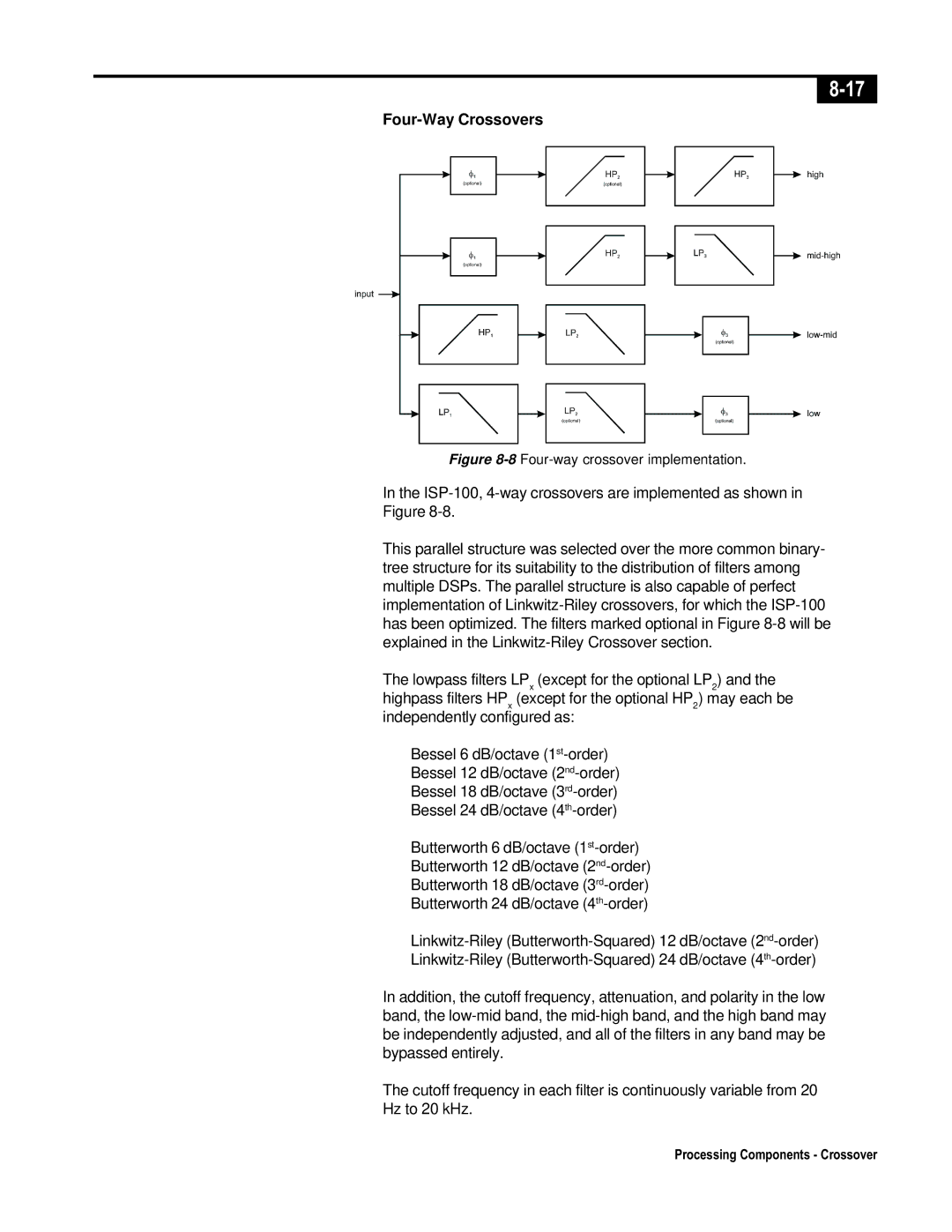
Four-Way Crossovers
Figure 8-8 Four-way crossover implementation.
In the
This parallel structure was selected over the more common binary- tree structure for its suitability to the distribution of filters among multiple DSPs. The parallel structure is also capable of perfect implementation of
The lowpass filters LPx (except for the optional LP2) and the highpass filters HPx (except for the optional HP2) may each be independently configured as:
Bessel 6 dB/octave
Bessel 12 dB/octave
Bessel 18 dB/octave
Bessel 24 dB/octave
Butterworth 6 dB/octave
Butterworth 12 dB/octave
Butterworth 18 dB/octave
Butterworth 24 dB/octave
In addition, the cutoff frequency, attenuation, and polarity in the low band, the
The cutoff frequency in each filter is continuously variable from 20 Hz to 20 kHz.
Processing Components - Crossover
